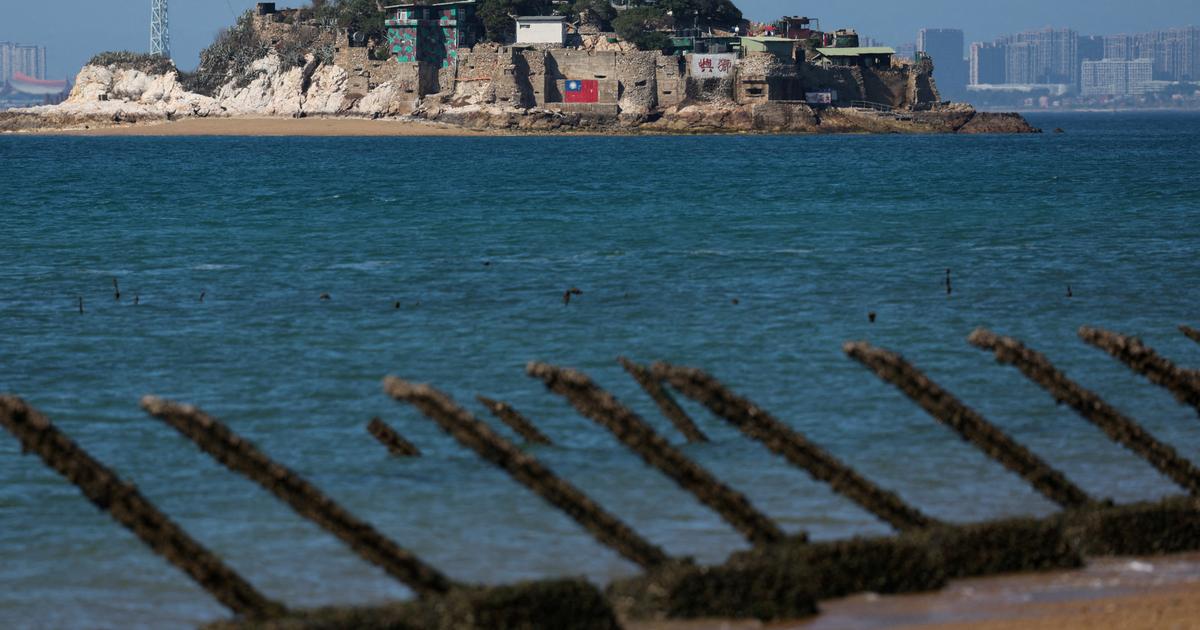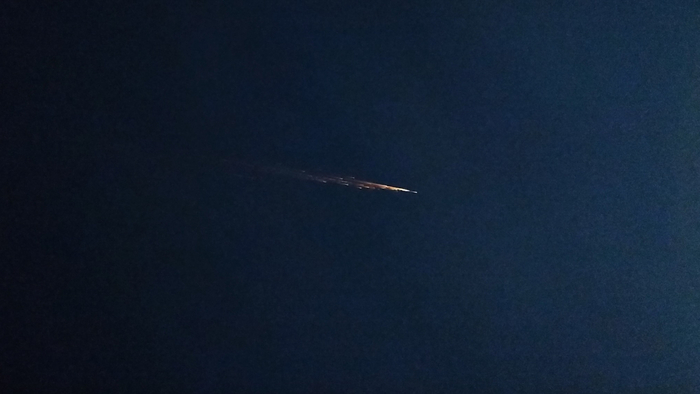Enlarge image
Start of the heavy-duty transporter "Langer Marsch 5B" on April 29th
Photo: STR / AFP
The head of the US space agency Nasa, Bill Nelson, has criticized a Chinese space maneuver.
Space nations need to minimize the dangers to people and property on earth from re-entry of space objects, Nelson said.
"It is clear that China has not met responsible standards for its space waste."
The remains of a rocket used to build the Chinese space station had recently fallen into the Indian Ocean near the Maldives archipelago. China's space program announced that "the greater part" had burned up and destroyed when it re-entered the earth's atmosphere. The rocket had previously been seen in the sky over the Middle East and then entered the earth's atmosphere over the Arabian Peninsula.
The re-entry of the 21-ton main rocket stage was "uncontrolled," as Western experts said.
There were therefore warnings that remains could fall over inhabited areas and cause damage.
The new, particularly stable rocket of the “Long March 5B” type launched the 22-tonne “Tianhe” (Heavenly Harmony) module into space on April 29th.
It is said to form the main part of the Chinese space station.
That the debris would fall into the ocean was "statistically always the most likely," wrote the expert Jonathan McDowell from the Harvard-Smithsonian Center for Astrophysics in Cambridge, Massachusetts on Twitter.
“It seems like China won the game (unless we get news of debris in the Maldives).
But it's still inconsiderate. "
USA itself no innocent lambs
According to experts, the cause of the uncontrolled reentry is the design of the new rocket, which also had no trajectory to fall into the sea shortly after takeoff.
Rather, it has reached orbit.
Today rockets are built in such a way that, in this case, they can perform a “deorbit maneuver” with engines in order to enter the earth's atmosphere at a predetermined point.
Then any debris could fall deliberately into the sea, it said.
Even if this approach is the trend in space travel today, it is not a matter of fixed norms, said Brian Weeden of the Secure World Foundation, which is committed to the peaceful and sustainable use of space.
Weeden told the Space News website: "It's not a hard law that binds countries - just a voluntary guideline." The reason is that countries like the US don't want a mandatory law because they sometimes have to deviate from it themselves.
During the first flight of the heavy type "Long March 5B" in May 2019, remains fell in the West African state of Ivory Coast and, according to local reports, had damaged houses.
The rocket stage is one of the largest objects that has ever fallen to earth again.
China had defended its approach as an "international practice". Foreign Ministry spokesman Wang Wenbin asserted that it was "very unlikely" that the remains of the rocket stage would cause damage because it would burn up when it reentered. State media spoke of "Western hype about a threat from China" in space technology.
China is planning two more launches with this type of rocket next year when two modules are to be launched into space to be mounted on the main body of the space station.
The launch of a "Long March 7" rocket with the unmanned cargo ship "Tianzhou 2" is planned for this month.
A flight of three astronauts with »Shenzhou 12« to the core module »Tianhe« is also expected to follow in June.
According to experts, neither of these two imminent flights will be followed by an uncontrolled re-entry into the earth's atmosphere.
ssu / dpa








